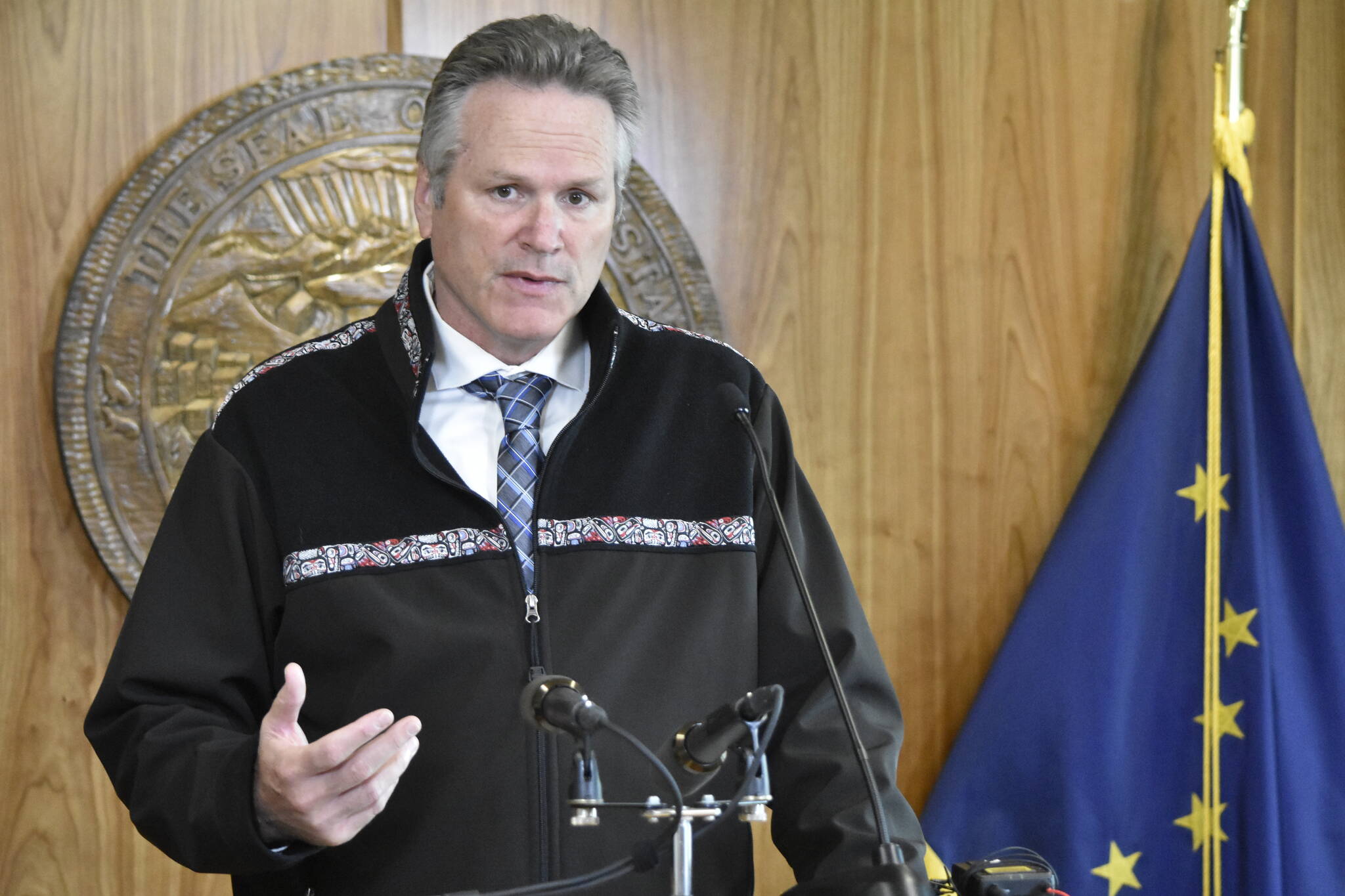On the same day Gov. Mike Dunleavy solemnly swore to “support and defend the Constitution of the United States,” he violated the First Amendment rights of two psychiatrists at the Alaska Psychiatric Institute. Dr. Anthony Blanford and Dr. John Bellville “were fired for failing to endorse or pledge allegiance” to Dunleavy’s political agenda.
That’s according to a ruling by Senior U.S. District Judge John Sedwick. In a lawsuit filed on their behalf by the American Civil Liberties Union, Sedwick further ruled that Dunleavy may be held personally liable for damages because “the First Amendment violation in these circumstances was clearly established and would have been known to any reasonable government official.”
That statement implies Dunleavy either knowingly disregarded their constitutional rights, or he failed to do the simple due diligence that would have shown such an act was unconstitutional. Either way, it’s evidence he’s unfit for the office he holds.
The loyalty pledge was made during the request for resignation that’s normally sent out during the transition to the administration of a new governor. However, instead of going to just the 250 or so high-level political appointees, Sedwick determined it went to more than 800 at-will state employees “without any regard to the particular positions they held.” Like Blanford and Bellville, those employees were not in policy-making positions.
Tuckerman Babcock is a co-defendant in the case. He was Dunleavy’s transition chairman who sent the letters and later served as Dunleavy’s chief of staff. When asked by reporters why the scope was expanded to include all at-will employees, Babcock explained that they wanted people “to affirmatively say, “Yes, I want to work for the Dunleavy administration.” He added they were “sending out the message, ‘Do you want to work on this agenda.’” And if employees didn’t “express a positive desire,” that would be interpreted as their “wish to be terminated.”
Babcock’s demands of political loyalty are well known from his days as chair of the state Republican Party. But he seemed baffled by the pushback they received when he tried to apply that un-American philosophy to non-political positions in the state workforce.
“Taking offense at the idea of being asked to submit your letter of resignation when you are an at-will employee kind of throws democracy on its head,” he said. “You are there to serve the public.”
That last statement may sound true, but for non-policy-making employees, serving the public isn’t defined by a candidate’s agenda unless it’s enacted into law. Thinking otherwise turns the democratic order upside down.
Sedwick wrote that Babcock’s statements to the media “solidified” the nature of the resignation requests. They “were requiring an ostensible commitment of political support, or at least deference, in return for continued employment, the effect of which was to either interfere with or chill employees’ exercise of protected First Amendment rights.”
In a letter to the editor, Blanford stated he’d been hired “for my expertise, not my political allegiance.” He and Bellville refused to sign the resignation request. According to the ACLU, at least one other non-policymaking employee also refused. All three were fired soon after Dunleavy was sworn in.
Resignations were also requested from all non-policymaking attorneys at the Department of Law. According to a separate complaint filed by the ACLU, a private attorney from Palmer urged Dunleavy’s transition team to “carefully vet” two who she believed were “very, very liberal.” They were the only two attorneys fired after submitting their resignations.
Libby Bakalar of Juneau was one of them. She received her notice a mere 18 minutes after Dunleavy was sworn in. Sedwick has yet to rule on her lawsuit against Dunleavy and Babcock.
We’ll never know how many other at-will employees didn’t support Dunleavy’s agenda but were intimidated enough to submit their resignations. Quoting from U.S. Supreme Court precedent, Sedwick wrote that to avoid being fired later, they might “feel a significant obligation to support political positions held by their superiors, and to refrain from acting on the political views they actually hold.”
Dunleavy should have understood that’s wrong. Whether he does now or disagrees and appeals the ruling remains to be seen.
Regardless, the Legislature should consider censuring him. And for Alaskans who value the freedom of speech, it’s our job to make sure he’s not reelected to serve a second term.
• Rich Moniak is a Juneau resident and retired civil engineer with more than 25 years of experience working in the public sector. Columns, My Turns and Letters to the Editor represent the view of the author, not the view of the Juneau Empire. Have something to say? Here’s how to submit a My Turn or letter.

